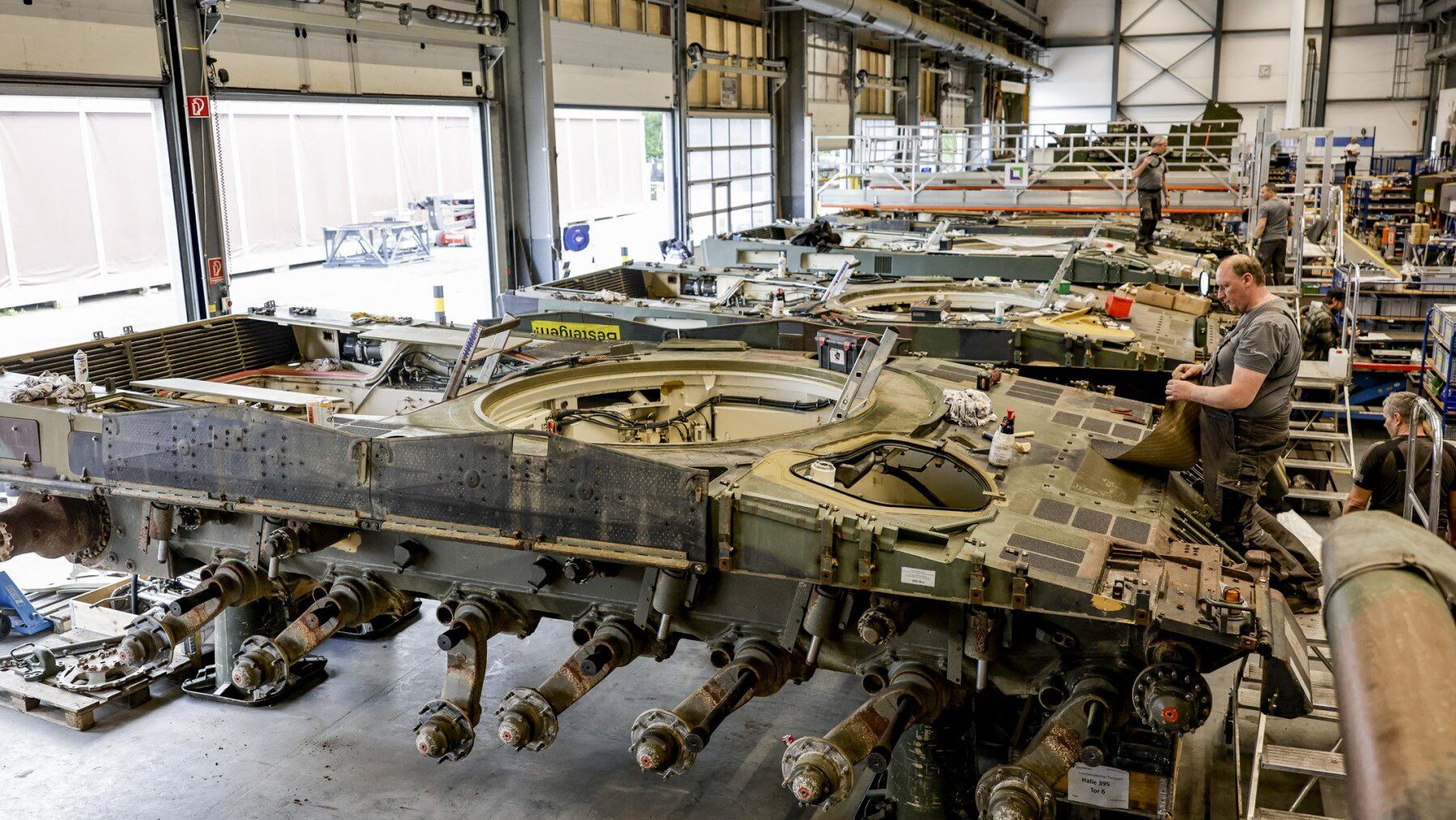
Leopard 2A4 main battle tanks being assembled at Rheinmetall plant in Germany.
Photo: Axel Heimken / AFP
The EU’s largest weapons producers—Germany, France, Italy, and Sweden—object to the European Commission’s plans to deepen the EU’s defense integration with a new, centralized arms procurement strategy, and recommend a “bottom-up” approach instead.
The informal document, or ‘non-paper’ in diplomatic terms, was sent to Brussels earlier this week and was recently leaked to Politico.
“Prerogatives of member states have to be regarded,” the four countries say in the non-paper, warning that any centralizing measure introduced from Brussels must be “suitable, necessary and proportionate.”
The objection came after it was revealed that the European Commission is trying to figure out ways to boost Europe’s weapons sales by making European companies more attractive and the arms procurement process more streamlined than their American counterparts.
Specifically, the Commission is proposing a new joint procurement instrument—overseen from Brussels—as well as a system based on the U.S. Foreign Military Sales (FMS) scheme. FMS allows foreign countries to buy American weaponry directly from Washington instead of the manufacturers, and even to accelerate deliveries by drawing on the Pentagon’s own stockpiles.
The EU equivalent would be building simplified government-to-government schemes in order to make Europeans buy from each other instead of the U.S., supported by joint procurement from the European Defense Technological and Industrial Base (EDTIB), the EU’s ongoing effort to create an integrated pan-EU defense industry.
While the four signatories of the non-paper have no problem with streamlining country-to-country purchases, they do object to Brussels casting itself in the lead role at the expense of national capitals when it comes to EDTIB procurements and possibly even limiting competition in the process.
Free-market competition is important, as the four countries are home to Europe’s largest arms manufacturers, such as Germany’s Rheinmetall, France’s Naval Group and Dassault, Italy’s Leonardo and Fincantieri, as well as the Swedish Saab.
Instead of creating Europe’s centrally administered military-industrial complex right away, the four countries think it is “important to focus on actions in a bottom-up approach from the early stages of the production chain, notably on innovation and R&D … Such actions would also naturally result in incentivizing joint acquisition of the end product.”
According to an unnamed diplomat, the non-paper’s recommendations will be further endorsed by at least nine other member states, all of whom support boosting Europe’s defense capabilities but object to handing more powers to Brussels. Instead of new instruments, they’d prefer reviewing already existing frameworks to retain control over the process.
“A defense industry strategy should build on already established defense initiatives and EU action in order to ensure that these instruments are utilized and optimized to support the EDTIB,” the non-paper argues, pointing out that further instruments could easily “limit competition” in Europe.
“Supporting and developing EDTIB requires the effort of all Member States and EU institutions along their respective roles and responsibilities,” the paper adds.
